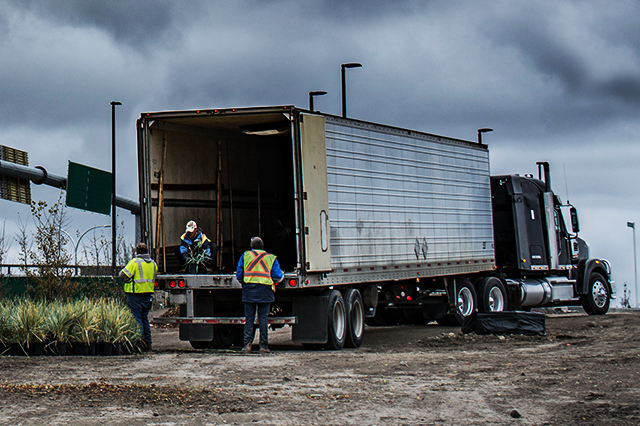 April 25, 2024 - BY EagleLogistics LLC
April 25, 2024 - BY EagleLogistics LLC
In the age of Homo Faber, the maker, manufacturing was king. From the pyramids of Egypt to the factories of the Industrial Revolution, humanity thrived on its ability to transform raw materials into objects of utility and desire. Today, however, in the age of Homo Deus, the data demi-god, manufacturing faces a new challenge: the paradox of efficiency.
Just-in-Time (JIT) production, a cornerstone of modern manufacturing, has delivered unprecedented levels of optimization. By minimizing inventory and synchronizing deliveries with production schedules, JIT has streamlined operations and reduced costs. Yet, like all human creations, JIT is not without its Achilles' heel.
Imagine a well-oiled machine – a symphony of robots, algorithms, and human expertise. This machine is your factory, churning out products with clockwork precision. But this symphony relies on a silent conductor – the logistics network. A single missed note, a delayed shipment, and the entire orchestra grinds to a halt.
The modern world runs on a hair-trigger. Consumers demand instant gratification. Production lines hum with the expectation of flawlessly delivered components. Disruptions – pandemics, geopolitical instability, climate disasters – were once blips on the radar, mere footnotes in quarterly reports. Today, they’re existential threats.
This is the Just-in-Time Apocalypse: a world where a seemingly minor hiccup in the supply chain can cripple entire industries. Here's a glimpse into this potential future:
-
A cyberattack cripples a major port, triggering a domino effect that leaves factories starved for essential materials.
-
A regional conflict disrupts established trade routes, sending the price of raw materials skyrocketing.
-
A natural disaster devastates key infrastructure, severing the arteries of the global logistics network.
These scenarios are not science fiction; they’re potential chapters in the ongoing story of globalization. In this hyper-connected world, vulnerability is a shared trait. A disruption in one corner of the globe can have ripple effects across continents.
So, what’s the answer? How can manufacturing, the engine of human progress, navigate this treacherous landscape? The answer lies not in abandoning efficiency, but in building resilience.
Here's where Eagle Logistics steps in. We’re not just a freight broker; we’re your logistics orchestra conductor. We understand the intricate score of your manufacturing symphony. We anticipate potential disruptions and adjust the tempo accordingly.
Our network of carriers is diverse and geographically dispersed. We don't rely on a single route or mode of transport. We are the maestros of redundancy, ensuring that your production line never misses a beat.
But resilience is more than just backup plans. It's about fostering a collaborative spirit. At Eagle Logistics, we believe in open communication and data transparency. We work closely with our clients to understand their unique needs and vulnerabilities.
Imagine a future where manufacturers and logistics providers operate as a single, agile entity. Information flows seamlessly, allowing for proactive adjustments to disruptions. This is the future Eagle Logistics is building - a future where the Just-in-Time Apocalypse never comes to pass.
Because ultimately, manufacturing is not just about producing goods; it's about building a future. It's about ensuring that humanity, Homo Deus with all its technological prowess, never forgets the lessons of Homo Faber: the importance of resilience, of adaptability, and of building systems that can withstand the inevitable storms of the 21st century.
This blog post is just the beginning of the conversation. Contact Eagle Logistics today for a free consultation and discover how we can help your manufacturing business navigate the complexities of the modern supply chain.Let's build a future where manufacturing thrives, not just in times of calm, but in the face of the unexpected.
